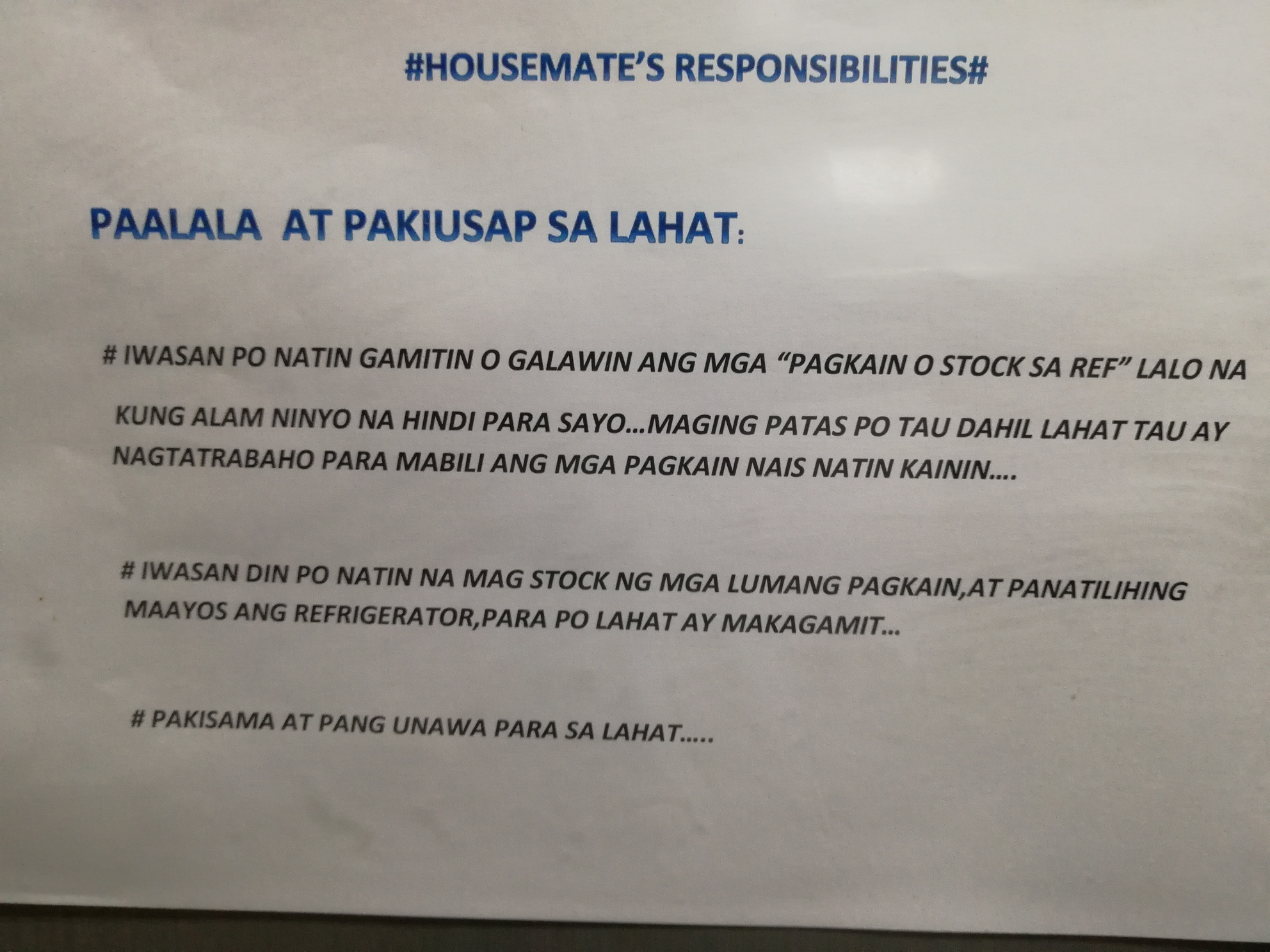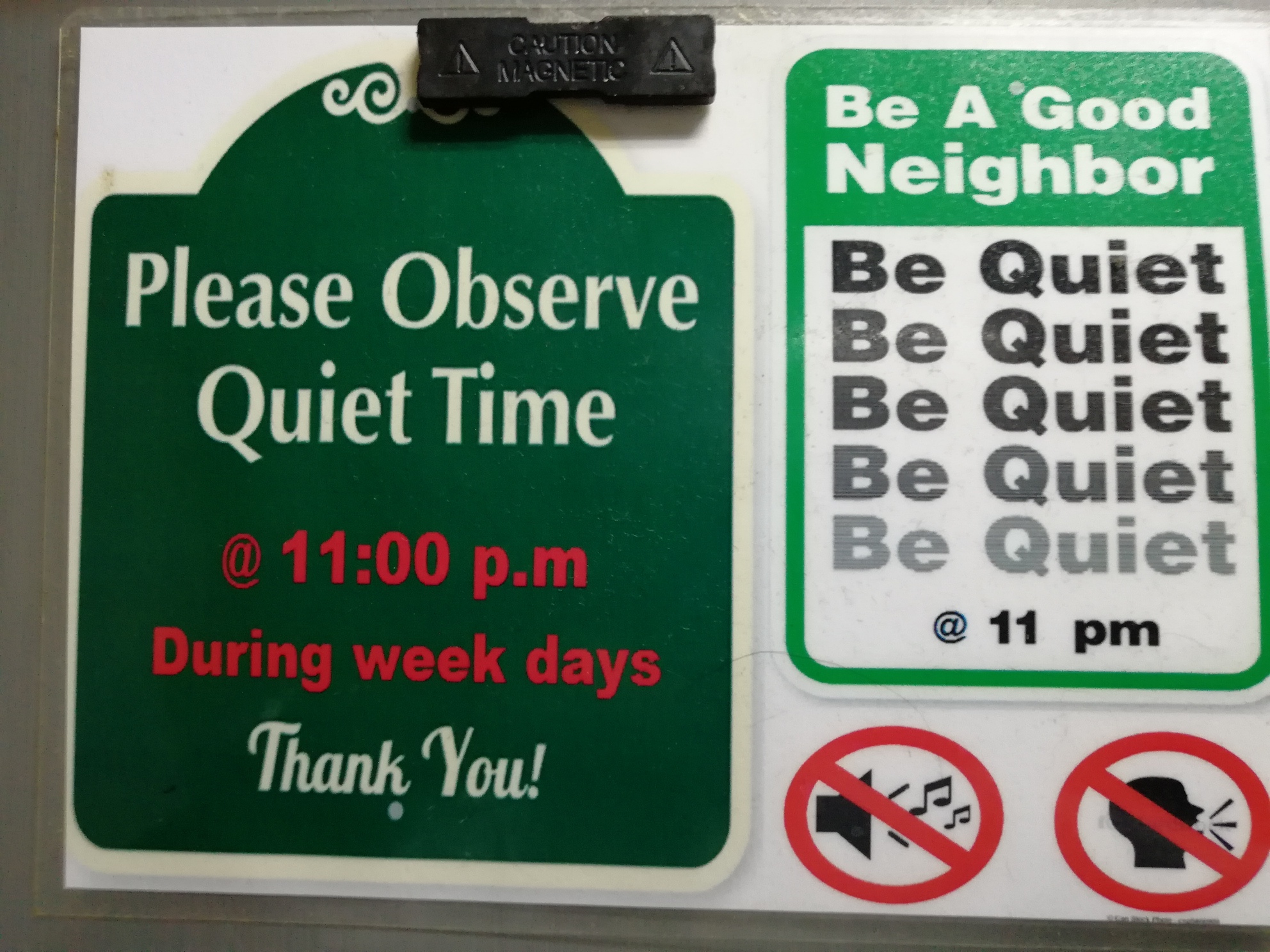‘Sniper’ or the definition it has taken in the accommodations to mean someone who takes things and food without being offered, has a loose etymology. One could only surmise it takes its roots from the way a real sniper operates: covertly.
DUBAI: “He came like a thief in the dead of the night and took off with my adobo!”
Put one million Filipinos in another land and have them stay in shared accommodations. What do you have? Fun and a li’l bit of helter skelter.
Fun because you are all kababayans and what better way to enjoy working abroad than with your fellows from back home?
Staying in common living quarters is step one of the ladder to a better life for overseas Filipino workers (OFWs) in the UAE; but the downsides of an extended family ties in the Philippines, where one “better-off” kin is “obligated” to send money to a sibling’s son’s tuition, for instance, not to mention the regular care boxes (the list goes on endless), have somewhat caused most OFWs to be stuck in step one…
…and live with a little bit of helter skelter. Indeed, the confusion can be something: There’s the case of a missing pair of pants left hanging to dry by the laundry room clothesline; the unkempt kitchen; and the noise in the wee hours from some unforgiving souls.
Not to say of course that step one will always be a bad thing. There are stages to go through till one finally finds a “dream” shared room. Some partitioned accommodations are better and more orderly than others. It’s a matter of going through these different situations – living with people of different upbringings, including those who still blame it to the mangkukulam (witch) when someone gets sick mysteriously; and a “sniper” in your midst.
‘Sniper si kuya’

They say that if you haven’t come across a “sniper” all your life living in shared space, you are not a “full-fledged UAE OFW.” That’s not really stretching it too far, just ask the person next to you.
Virtually everyone has had brushes with a “sniper” – grocery in the freezer “gone with the wind,” or someone beating someone to his or her packed lunch for work or dinner in the ref.
“Sniper” or the definition it has taken in the accommodations to mean someone who takes things and food without being offered, has a loose etymology. One could only surmise it takes its roots from the way a real sniper operates: covertly.
And so, the “sniper” comes in clandestinely, if you will, when nobody’s looking; and operates with great agility and swiftness.
Habitual type
Cooler heads attribute these “ways of the thieves” to a habit developed back home. “Meron kasing iba, naka-ugalian na nung nasa Pilipinas pa. Pupunta sila sa kusina nila sa bahay at titikim ng ulam o kung ano man,” said Hilario Caruncho, a fastfood chain service crew. (There are others who have gone used to sampling anything they could find in their kitchen back home, and they have brought that habit with them.)
Forgetful type
Mary Briones, administrative assistant who said she had lost eggs to “snipers” explains: “Yung iba, unintentionally nila nakukuha mga bagay… akala nila kanila. Tipong sa memory nila meron sila nabiling itlog o hotdog o etc… di nila alam matagal na nilang nailuto yun.” (Others unintentionally do it, thinking what they were taking were actually theirs not knowing they had actually consumed what was actually theirs.)
Complicating matters is when most occupants buy from the same hypermart or street corner grocery store and have their foodstuff in plastic bags with the same brandings – someone would take one with fish or chicken in it not aware that another one has the same in one of the bags; and so the mix-up.

‘The Shopper’
“Minsan o madalas,” adds Briones, “yung iba di mo alam kung sadyang nagiging dependent na sila sa supply ng iba kasi sabihin nila nakalimutan nila bumili ng mantika, toyo, patis, bawang, sibuyas etc. Okay lang kung madalang gawin kaso naging excuse na lang nila na mamalengke ng libre sa supplies ng iba.” (Sometimes, others seem to have gotten used to asking for the small things like condiments and cooking ingredients. It’s fine if they do it judt once in a while; but it’s a different story when they do it whenever they cook their meals.)
The ‘cat with two legs’
These are the types who peep into pots and pans in the kitchen, including the rice cooker, for his or her meal, like cats do.
“Yung iba, they really dig in the ref and take what they can,” says “Amelia,” adding “pati sinaing kinukuha para nga naman complete meal.”
Shares Rubie Baltazar Evangelista, who works at a multinational engineering company: “We had one roommate, she works night shift. And so she cooks rice when she comes home in the morning, eats and sleeps. She gets up thinking she still has leftover rice for meal before going to work, but it’s gone.”

Violated
There is a frustrating sense of having been violated when one discovers that what he or she has in the kitchen is not there anymore. A stress-free way out says Abby Baker, a public relations executive, is not keeping tabs with what you have.
Asked if she has had similar experience, Baker said: “Siguro (maybe). I’m not certain. Di rin kasi ako palahanap ng food. Kung anong matira samin, ok lang kung makakain sila. Normally we share food talaga kasi. No issue samin naman yun.” (I don’t usually look for my food. If we have leftovers and someone takes it, that’s fine. No issues.)



